|
Dear friends,
During Gene's last few weeks, I stopped by his home to check on him as often as I could. He wasn't up to long conversations, but I always tried to give him one or two positive updates on what was happening at the Institute or ways that Focusing was changing lives. Popping by one afternoon, I mentioned that I had begun teaching a Bible study at my church, using Focusing as a way to read passages in a bodily way. Though he was very tired, his eyes lit up, "Oh, that's wonderful," he said.
I didn't say too much more to him, except that the little study group was astonished at the fresh ways in which they were experiencing themselves in relation to the texts. I based the study process on a simple curriculum called "Sacred Presence," developed by Donata Schoeller and Mary DuQuaine. We read short passages of a text (in this case, the Bible, but it could be any meaningful writing), and then the group sat in silence, noticing what their bodily reactions were to the words. In the case of the small group at my church, the participants weren't Focusers, and so the idea that the body could interpret the text was brand new to them.
One man, whom I'll call George, attended the Bible study week after week. As an African-American who grew up in the Jim Crow South, George had known significant discrimination, and had battled addictions and financial insecurity his whole life. On this particular day, we happened to read a passage called the "Beatitudes," where Jesus declares that hunger, poverty, and discrimination are blessings. We read it, and sat in silence, until George said, in his gentle, strong voice, "If I'm honest with you, when I read this, what I feel in my body is anger." He paused, and then, with voice raised just a bit, "Why would Jesus say such a thing?" He looked at us, with growing intensity. "I've been hungry. It's not a blessing. I've been poor. It's not a blessing. I've been spat upon. It's not a blessing."
One woman, uncomfortable with what he was saying, instinctually jumped in to defend Jesus' remarks. Other members of the class had learned, however, to let each person's experience stand, uncritiqued. They invited her to stay quietly with her discomfort so that he would be free to continue. As the group held the space graciously for him, we could see his body relaxing and he was raising himself up a little straighter in his chair. "Why," he said with passion, "would Jesus lie like that?"
Someone in class affirmed, "Jesus is lying. Poverty and hunger and being spat upon are NOT blessings."
We could feel his righteous anger mixing with joy at being heard, "Yes," he reiterated, "No one should be told that it's OK that you're hungry. No one should be told that it's OK that you have nothing." With each statement, the group was more and more with him. "No one should be allowed to be spat upon." The room remained in silence for a bit, in solidarity with him. And then we moved on.
The next week, he arrived early. As a few of us gathered, he shared, "I always felt like my church was telling me to just take the abuse that life has dished out to me. And I've tried to hold it all and not be bitter, and I feel that I'm not bitter. But for the first time last week, I felt that there was power in my pain. That is something new for me. I feel some sense of power where I'd felt powerless."
Power where we'd felt powerless. That is the beauty of this process. In our compassion for ourselves and for others, we may become more gentle and loving, but it is a gentle lovingness that is powerful, and which seeks justice for all.
I didn't tell Gene all of that. He was tired that day, and I felt it was enough for him to know one more small way in which his work was being carried forward.
We are now in our end of year fundraising season. There is much to do in the world; many people to reach with Focusing and many ways in which we are -- and must continue -- building Focusing communities so that we can have a Focusing world.
Please give as generously as you are able. If you aren't a member, please become one. If you are already a member, please give above and beyond your membership dues. Together we will carry on, carrying life and thought forward.
Warmest regards,
-Catherine Torpey, Executive Director,
The International Focusing Institute
|
|
| |
|
|
|

 Eugene Gendlin Eugene Gendlin
|
|
 |
| Front & back |
 |
Quotations
Deck of Cards
52 different quotations by Gene.
A great gift.
|
|
|
 |


Board of Trustees: A Visit with Dana Ganihar
An interview by Barbara Dickinson
magine meeting someone for the first time. After an hour you check inside and you notice a felt sense that seems very much like the one you have in the presence ofsomeone you've known and enjoyed for a long time. That is the sense I had after my interview with Dana Ganihar in preparation for writing this article.
Of course I know Dana's name as a member of The International Focusing Institute's Board of Trustees, and Dana knows mine. But we have never heard each other before this conversation.
How can I express my delight listening to Dana's message, some of her life stories, her admiration for the Philosophy of the Implicit, and more? I guess it will suffice to say Thank You! to The International Focusing Institute for giving me this opportunity to interview Dana and convey to the global Focusing community how delightful it is to come to know her.
Barbara Dickinson is a Certified Focusing Professional who also
consults with individuals and non-profits on strategic planning.
|
|
|
 |


International Leadership Council: Meeting Donata Schoeller
by Deborah Jones
"The questions within us are so valuable- They can lead to real thinking, allowing our natural Philosopher to emerge. Gene's practices and his philosophy help us unfold this potential. I am passionate about that!" - Dr. Donata Schoeller
Donata is currently serving a three-year term on the International Leadership Council. To the council she brings gifts of philosophy, clarity, wisdom, and exuberance for Focusing and Thinking at the Edge (TAE). Notably, having worked closely with Gene, Donata carries forward echoes of him and his gift of Focusing.
Presently, Dr. Donata Schoeller calls Switzerland her home but is an Associate Professor at the University of Koblenz and developed a special place in her heart for Chicago while a Visiting Professor at the Philosophy Department, DePaul University.
As a child, Donata found herself journaling and journaling about the big questions in life. Curious about this questioning, she asked, "Explain it to me, what is it that I am journaling all the time these big questions?" Someone said, "Perhaps you are doing philosophy." As of then, she decided that's what she would study!
She received her PhD in Philosophy from the University of Zurich in 1999. Her bachelor's and master's degrees were in Philosophy and Comparative Religion.
After receiving her PhD and having three children, Donata met Gene Gendlin. She intensively began to study his philosophy and also decided to translate Gene's A Process Model from English to German. After five years of working together with Christiane Geiser and Gene Gendlin, the translation was published in 2016, including her first time introduction to Gendlin's main work. Together with Ed Casey, she also edited the book Saying What We Mean, an anthology of Gendlin's philosophical articles. It was published by Northwestern University Press.
Donata has studied Focusing and TAE in Switzerland, Germany, and the United States since 2004. She has written many publications and the list of her speaking at conferences and the development of curricula is extensive. An article that she is co-authoring with Neil Dunaetz is coming in 2018: "Thinking emergence as interaffecting: Approaching and contextualizing Eugene Gendlin's A Process Model."
In this digital age, the use of media oftentimes replaces experiencing and data replaces thinking. Donata believes in these times, that the need for Focusing and embodied thinking (which one learns with TAE) gains a new kind of importance. She sees that "Learning how to think through our own questions on the grounds of your actual experience, makes you resistant toward manipulation. This needs to be developed just as much as Artificial Intelligence."
Finally, she wanted to communicate that our questions and voices are important to the ILC. They are eager to hear from all Focusers.
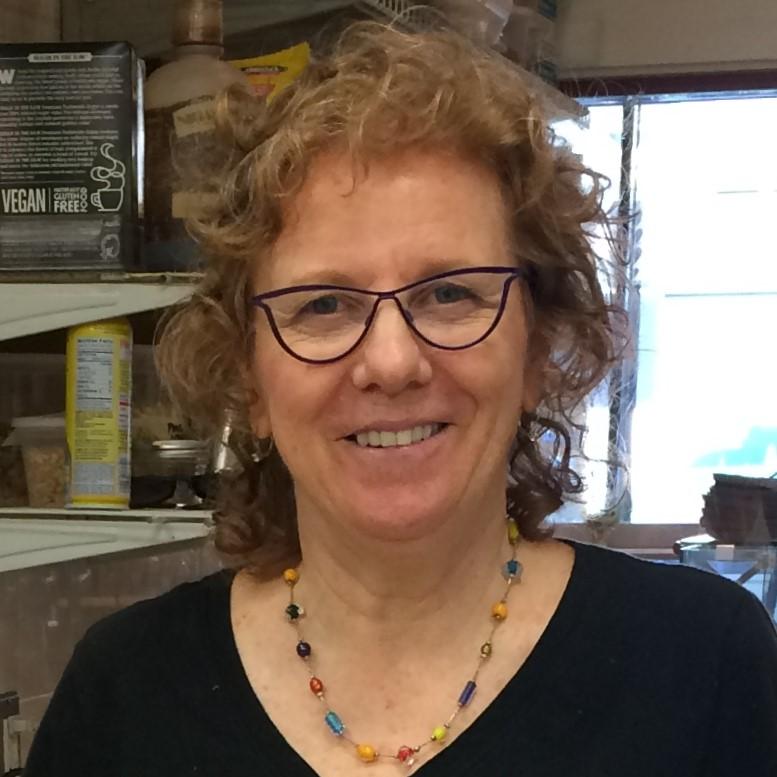 Deborah Jones is an Interior Designer, Rhode Island
Massage Therapist, and a Certified Focusing Professional
|
|
|
 |
 |
|


Discovery, Community and Growth
1st Open National Focusing Conference in Seville, Spain
Discovery, community, and growth. Those are the words that my body chooses to symbolize the whole experience of the First Open National Focusing Conference. Organized by the Spanish Focusing Institute and coordinated by the Sevillian team of Espacio Vivencial, the Conference took place from the 12th to 15th of October 2017 in the charming Andalusian city of Seville, in the south of Spain.
A couple of years ago the Spanish Focusing Institute decided to launch an event to promote and disseminate what is being done in the Spanish-speaking Focusing community. Through hard work and many deep processes, the Conference has been a success at many levels.
Click here to read the full article
|
|
|

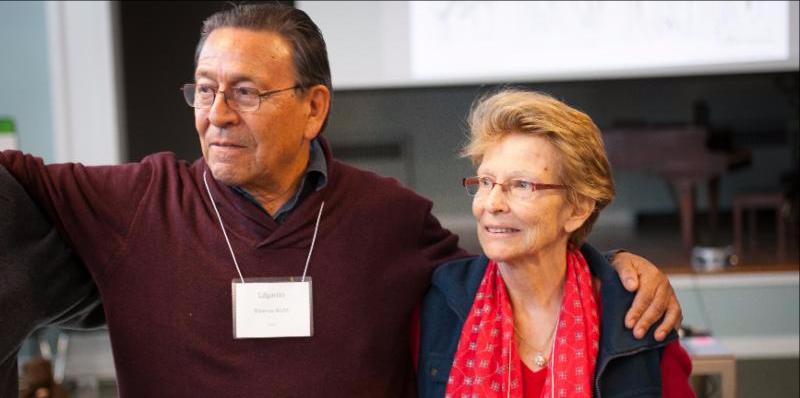

Belonging and Crossing in Community
Advanced and Certification Weeklong 2017
by Sue Burrell
Attending the Weeklong at Mercy by the Sea, Connecticut was the culmination of several things for me. It was the high point of two years of training with Jane Quayle to become a Focusing Trainer; it was after ten years of learning and studying Focusing with different Focusing teachers - Ann Weiser Cornell, Robert Lee, phone classes with Gene and Ann and their many CDs, Jocelyn Jacks Kahn, Karen Whalen, Glenn Fleisch, Katarina Halm, and many books and papers. It was also the fifth week of a six week trip to the USA, and the third of three conferences I attended while there. The Weeklong was a wonderful way to end a wonderful trip.
The first delightful experience I had was finding that the conference centre was set in the most amazingly beautiful surroundings, right on the ocean, with its own private beach. I swam in that rather chilly water one day - my first time swimming in the Atlantic. One intrepid Focuser swam every day! The second delightful experience was opening the door to the room I was to share with my Australian friend and Focusing partner, Merilyn Mayhew, and seeing that our room looked out onto this wonderful view, through great big windows, wow! Mercy by the Sea was a serene and embracing place to snuggle into for a cornucopia of Focusing experiences. Meeting fellow Focusers from all round the world was the next delight. Certification Weeklongs have such a rich and interesting mix of Focusers with varied Focusing backgrounds and interesting jobs and careers, not only therapists. Those who spoke English as a second language added an important dimension to the experience. I was very impressed by their fluency and courage to listen to mostly English presentations, and for some of the Coordinators to give their presentations in English.
Click on the seashells for more Weeklong photos
|
|
|
 |


48 hours and 75 minutes later...
Lynn Rosen is a Wholebody Focusing Trainer sharing WBF since 2003 and the Alexander Technique since 1990.
Two days earlier the therapist was led to something new in herSelf.
Two days later she transmitted Something-new to her client.
Two days after participating in my 75-minute group at the 2011 International, a therapist made a gentle suggestion to her client. It was a surprise for the therapist:
"I was working with a very concrete client, someone who has difficulty with metaphor. Often when I work with her, she'll have trouble with instructions that may be hard to understand in concrete terms."
A gentle suggestion, an invitation that seemed to have no connection with the real world, allowed something new to happen:
[We were] "in a (seated) psychotherapy session. When I encouraged my client to feel the support of the earth coming up through her feet, she uncrossed her legs without my prompting, and I could visually see her legs relax and drop as she started to really ground herself. This enabled her to relax her breathing (which is often held very high and tight)."
Two days earlier, in that 75-minute session of directly experiencing her Whole Body in relationship to others in the room, the therapist was led to something new in herSelf. Two days after those 75 minutes she had already integrated the experience of herSelf as container, as Embodied Be-ing. Transformation had occurred in her. It was this Something-new that she transmitted to her client and,
"... it enabled her [the client] to deepen the work in that session, with regard to accessing more painful feelings and also taking risks in expressing herself to me in the transference."
How do I understand what happened to the therapist in my workshop?
|
| |
|
|


El Focusing y la Comunicación No Violenta:
Dos abordajes unidos por puntos en común
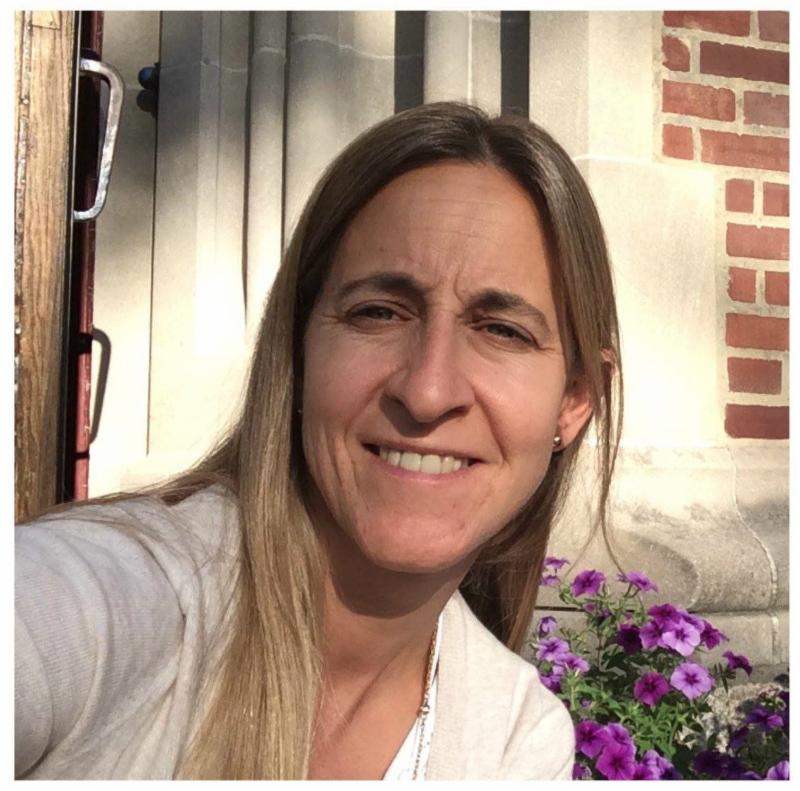
The In Focus newsletter is featuring non-English submissions from our members. We ask that submissions be accompanied by an English introduction. Mariana Pisula is a Focusing Professional, works as a Grief Counselor in Buenos Aires, and is on the TIFI membership committee. She provides an abstract of her article below.
The article proposes to bring together two approaches that share much of their philosophies. The Non-Violent Communication and the Focusing Process invite us to pay attention to what is happening to us: What is alive in me? Using Presence Language and Giraffe Language, we can observe situations without judging, without interpreting, and checking how we are feeling with what we are observing. Maybe, from this observation, we might note that human need we are wanting to satisfy.
|
| |
|
|


Focusing Conversations Series
Listen to conversations with Focusers, hosted by Serge Prengel
This month, instead of the usual conversation with a Focuser, I want to share with you a conversation with somebody who is not a Focuser. The conversation is with Sarah Peyton, who is, among other things, trained in Non-Violent Communication. She has developed an approach that has a lot of similarities with Focusing. In doing so, my point is not to invite the comparison between her approach and what we do. Rather, it is to talk about building bridges with kindred spirits who are not Focusers.
Why would we do that?
Focusing is not as well-known as it should be. This may well be because of the very nature of Focusing, its natural gentleness. We are not aggressive proselytizers. We do not believe that the end justifies the means, in the sense of adopting hard-sell approaches to “sell“ people on the value of listening to subtle inner processes.
Our natural audience is comprised of the people who are already kindred spirits, and there are a lot of them out there: people who meditate, people who practice nonviolent communication, people who have come to value thoughtfulness through their therapy, people who have embodied practices such as Feldenkrais, yoga, Aikido, you name it.
What do we tell these people? Well, I would suggest that we start by listening to them. That we let ourselves be amazed by how strikingly similar their values are to things we hold very dear in the Focusing world. As we notice how much we have in common, as well as whatever differences there might be, we can engage in a very productive and mutually beneficial dialogue.
So, as you listen to the interview with Sarah Peyton, I hope that you experience some of that excitement that I have about connecting with someone outside of the Focusing community who has so much in common with us. In particular, how important it is to experience “resonance.“
There is another reason I am sharing this conversation with the community. As you listen to it, you will notice that Sarah’s way of describing her approach is grounded in neuroscience. Similarities exist between her understanding of neuroscience, and what many of us who are interested in neuroscience and Focusing think about that.
The framework of neuroscience gives us the opportunity to present Focusing as the cutting-edge approach that it is. When Gene Gendlin talked about “bodily felt sense,” he was not using “body“ as the opposite of “mind“ – flesh and bones as opposed to unsubstantial soul. He was talking about a phenomenon, a process. He was a forerunner of Daniel Siegel who now describes the mind as an “embodied regulatory process.”
I believe our new frontier, as Focusers, is to show people how Focusing gives us a human experience of what neuroscience is mapping out in scientific terms.
- Serge Prengel
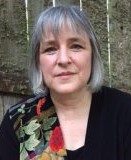
Sarah Peyton
Sarah Peyton shares practical advice on how we can improve the way we relate to ourselves, grounded in an understanding of the underlying brain functions.
|
| |
|
|


Upcoming Conferences, Retreats and Workshops
 |
with Peter Ryan
Saturday, November 25
11:00 AM - 1:00 PM Eastern Time (US)
|
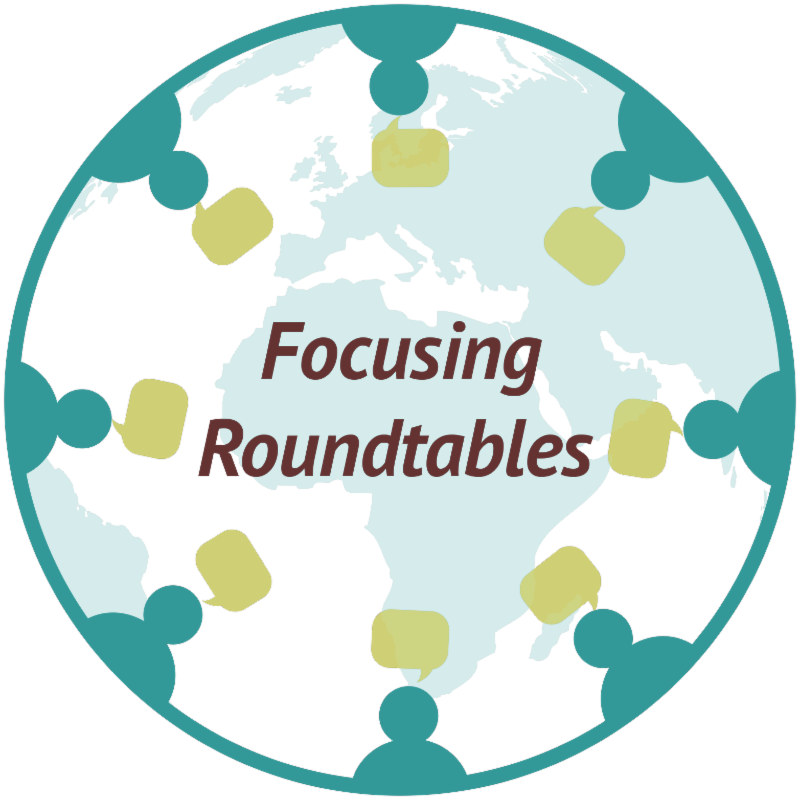 |
Friday, December 1
9:30 - 11:30 AM Australian Eastern Time
(Eastern Time USA 5:30 - 7:30 PM on November 30)
|
 |
with Joan Klagsbrun
Sunday, December 10
11 AM - 1:30 PM Eastern Time (US)
|
 |
with Charlotte Howorth
January 13-14
January 27-28
Starting February 25, 2018
|
 |
with Ruth Hirsch
January 17 - March 7, 2018
January 25 - March 15, 2018
|
 |
with Sally Tadmor
Starting February 2018
10 group sessions
|
|
|
|


Resources
This section of the Institute's website has a sortable list of major International Focusing events.
|
|
|
 |

|
 |


From the TIFI Office
|
International Volunteers Needed
Volunteers have been at the heart of the Institute since its inception. Our wonderful volunteers make up our Board and all our functional committees, support us through teaching online classes, organize conferences and produce media, translate and fundraise, and help with countless little projects to which we feel infinitely indebted. We would love you to join one of our teams. Currently, we are looking for additional volunteers for:
- Translating our communications into your native language;
- Editing our website in your native language;
- Producing and curating media for our website and social media;
- Copyediting articles that are submitted to our newsletter;
- Creating a Focusing app;
- Creating guided Focusing recordings.
Please contact Henry, our Volunteers and Media Manager, at [email protected]. Also, if you were a volunteer in 2017, watch for an email inviting you to our end of year Volunteer Recognition gathering!
|
Air Miles
We are a very international organization and it is extremely meaningful when we can be together. Frequently, however, members of our community cannot attend Focusing Institute events because in addition to the cost of the event, they have very high air fares. If you have air miles that you are willing to donate, please contact us. Your airmiles could be used to help members of the Board of Trustees and the International Leadership Council to attend their face-to-face meeting, or to help someone being certified to attend the Weeklong. Please help give someone the chance for these meaningful connections!
|
|
|
|
 |

|


Bequests
Have you considered remembering the Institute in your will? Leaving a bequest can be a way to continue to promote Focusing well into the future. Please contact us if you are willing to do this or have done so already. Thank you! |
|
|
|
|
|
|